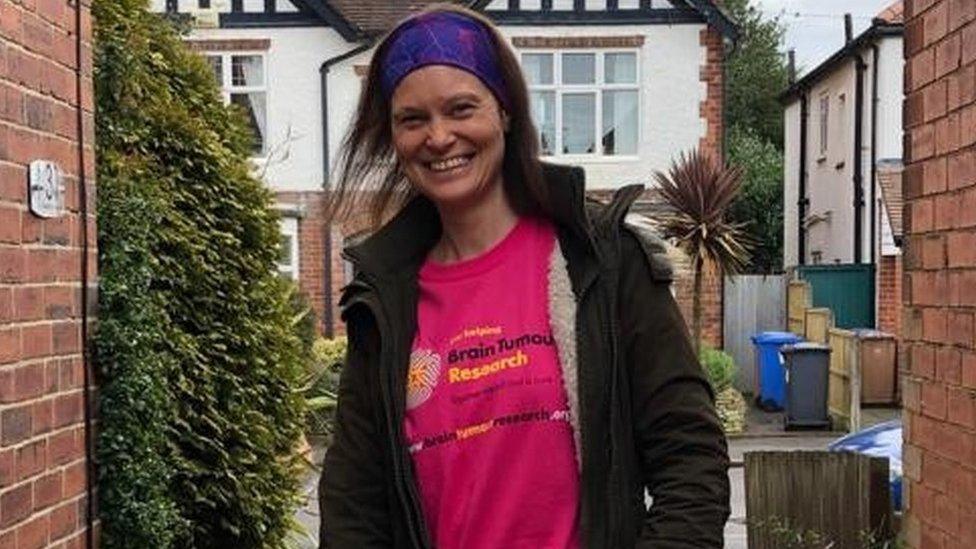Cancer patients waiting 12 weeks for brain scan results
- Published
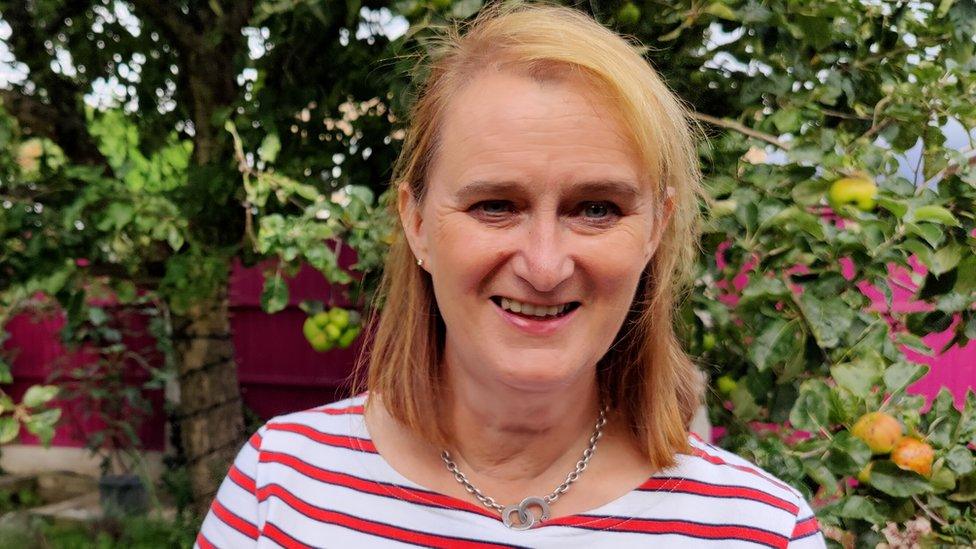
Wendy Hayeck spent much of her career as a nurse within the NHS in Shropshire as a midwife
A former nurse said she had been forced to wait 12 weeks for MRI scan results following treatment for a brain tumour.
New NHS guidance, external suggests that the reports should be given to outpatients within four weeks.
Wendy Hayeck had surgery in 2020 to remove a grade three tumour and needs quarterly scans as 5% of it remains.
Shrewsbury and Telford Hospital NHS Trust said it had made significant investments to reduce delays.
Mrs Hayeck, 53, said waiting times had got progressively worse since she started having regular scans at the Royal Shrewsbury Hospital.
"In the beginning I had my reports within two or three weeks, which was great because that was what I was expecting. And then it went to four weeks and then six - eight and 10," she said.
"At the beginning of the year it was 13 weeks, which in anyone's book is unacceptable, but especially for anyone who has a brain tumour.
"We have a very short time span in which to have treatment otherwise it's fatal."
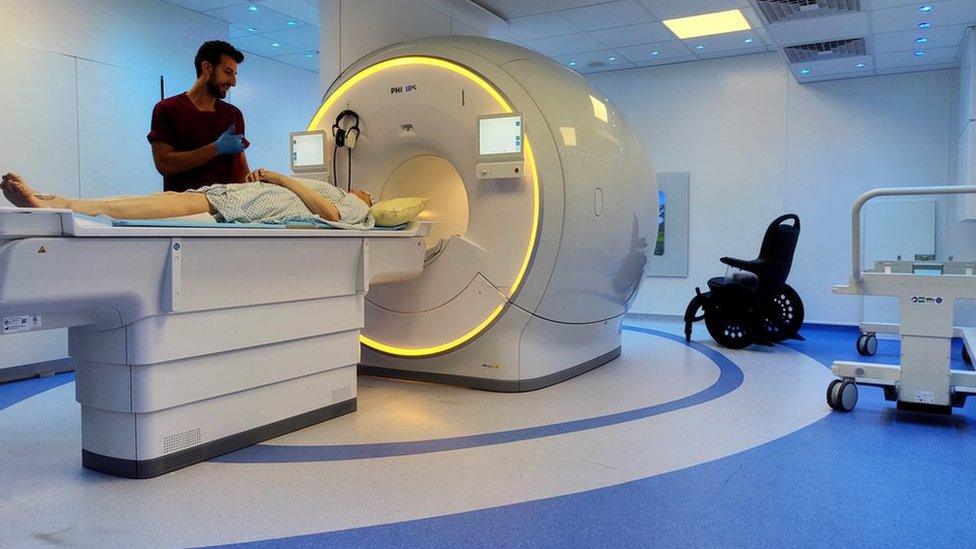
Dr Katharine Halliday says there has been a significant demand for diagnostic tests which includes MRI scans
Mrs Hayeck worked as a midwife and also within clinical cancer trials within the NHS in Shropshire, before retiring due to ill health following her diagnosis and associated memory loss.
In some instances Mrs Hayeck was having another brain scan before receiving the results from her previous one, which she said was "a complete anxiety fest because anything can happen in that time".
In the UK, about 16,000 people are diagnosed with a brain tumour each year and it is the main cause of cancer deaths in children and young people.
Only 12% of brain tumour patients survive beyond five years of their diagnosis, according to the charity Brain Tumour Research., external
Mrs Hayeck has raised her concerns with the Care Quality Commission, her local MP, patient groups and hospital bosses.
The chief executive of the Shrewsbury and Telford Hospital Trust acknowledged there was a "shortfall of radiographers and radiologists both at the trust and nationally".
While scans are carried out by radiographers, interpreting them is the job of radiologists, specially trained doctors.
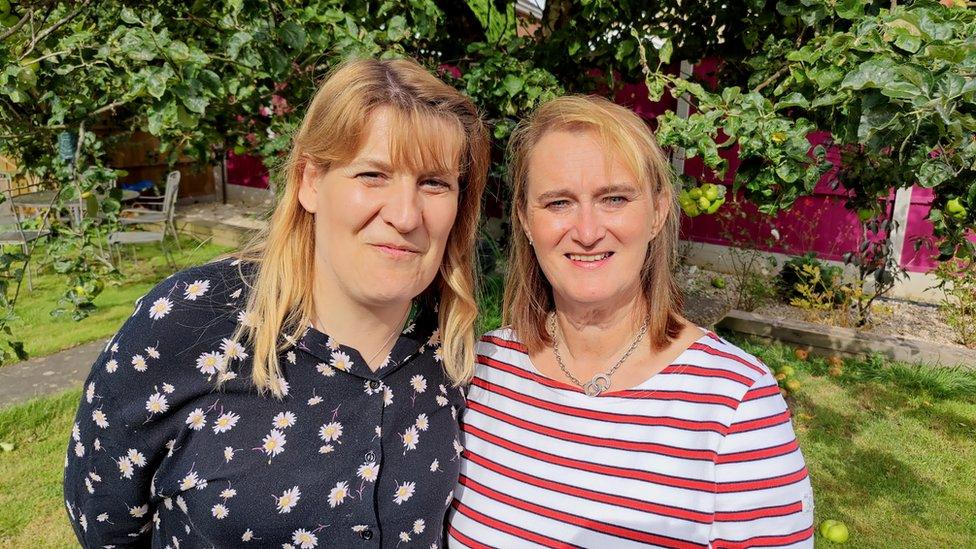
Keri Benting (left) and Wendy met after chatting on Facebook after grade three brain tumours were discovered
Following her operation at the start of the first national lockdown, Mrs Hayeck used social media to contact others who were undergoing brain tumour treatment.
After months of chatting to Keri Benting online the pair are now firm friends.
The 46-year-old has also endured long waits for results that are now more important than ever after new "spots" were detected in 2021.
After Mrs Benting, of Telford, experienced headaches in 2019, she made an appointment to see an optician after her GP dismissed her symptoms as stress related.
A suspected brain aneurysm led her to go to hospital where a 6cm brain tumour was discovered.
It was largely removed, but 4% of "Tommy the tumour" - as she has named it - remains as complete removal could have caused paralysis.
"The longest I've waited is 12 weeks, but now I'm very tenacious, so if nobody has contacted me with results within four weeks, I'm on the phone asking where they are," she said.
"I call it scanxiety. The scan doesn't bother me, but waiting for results does."
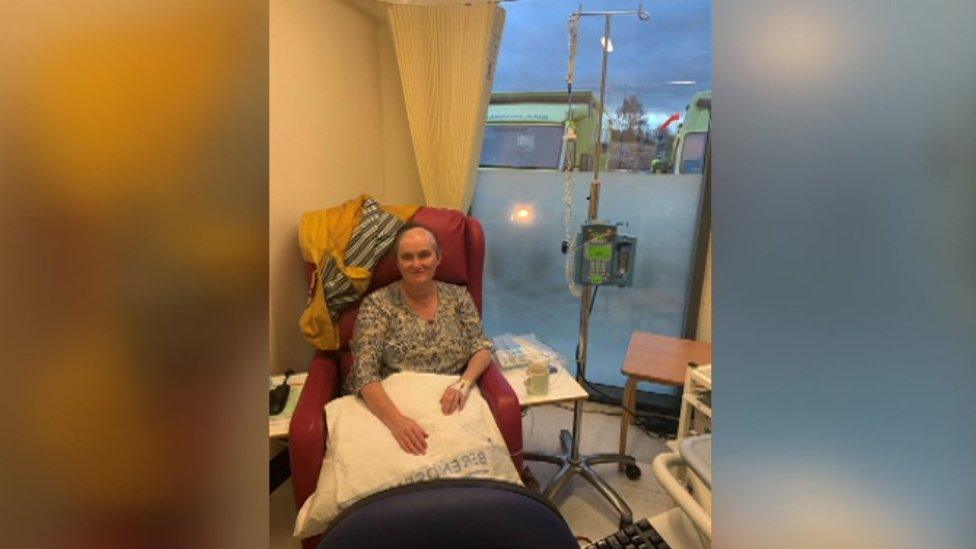
Wendy Hayeck has raised her concerns with the Care Quality Commission watchdog, among others
Wait times for diagnostic tests such as MRI results are not currently collected uniformly across the NHS, however recent NHS guidance has been written alongside the Royal College of Radiologists, external.
President of the college Dr Katharine Halliday said she believed the guidance would help build a better picture of what is happening across the country.
Rise in demand
"Until now we haven't had that standard to be able to compare different hospitals in different regions and now we can - that will allow us to highlight those places where they're really struggling and direct more resource," she said.
"Sometimes targets like this are really helpful for us."
With A&E units experiencing their worst delays on record last winter, departments such as radiology were heavily affected as emergency patients were prioritised.
In June 2023, more than 5,000 unscheduled MRI scans were carried out in the West Midlands, a 30% increase on the previous year (3,995).
Dr Halliday, a consultant paediatric radiologist in the Midlands, said she had seen at first-hand a sharp rise in demand in recent years.
"The facilities have to serve both the people who have the routine waiting lists and the people who come in as emergencies so it varies very much from hospital to hospital and if you have a lot of people coming in as an emergency, then you have to do those first because they can't wait."
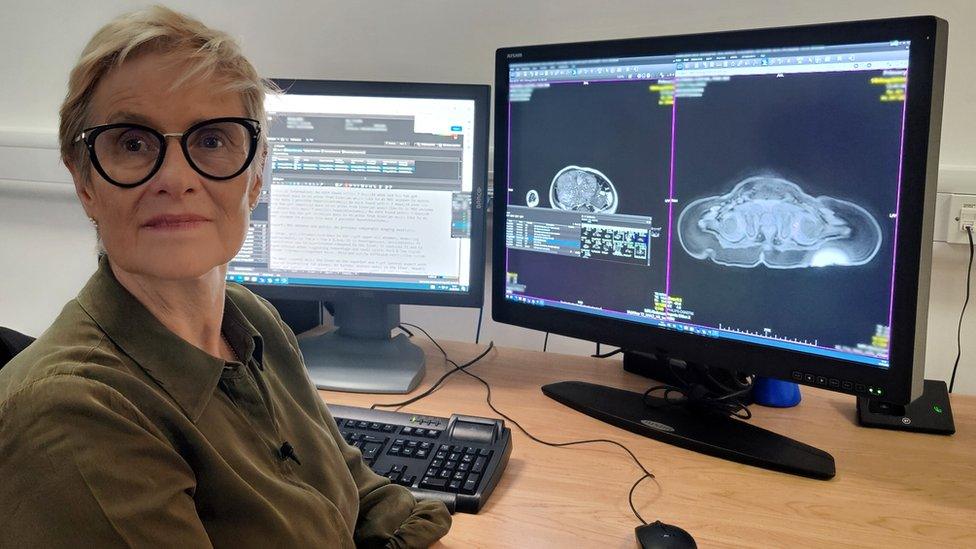
Dr Katharine Halliday says there are more applicants for radiology than medical school places available
Dr Halliday said the situation of some patients waiting more than 12 weeks for scan results was "really terrible" and was down to staff shortages.
She said radiology was a popular career choice and she wanted to see more funding as there were "lots more applicants than medical school places".
The Shrewsbury and Telford Hospital NHS Trust said it recognised there had been long waits for MRI scan results and had worked hard to try and reduce them over the past 12 months.
Sara Biffen, acting chief operating officer, said: "Capacity, including MRI scanners and the appointment of more radiologists, has increased to improve the reporting on MRI scans and we have seen a huge reduction in the number of patients waiting for results.
"We continue to prioritise clinically urgent patients and those waiting a long time."
Like many other staff in the NHS, radiographers at 37 trusts went on strike in June and July in a row over pay, however Shrewsbury and Telford Hospital Trust was unaffected.
Later this year it is hoped that Shropshire's first Community Diagnostic Centre in Telford, external will open, with the aim of increasing the number of patients that can be treated, as well as reducing waiting times.

Follow BBC West Midlands on Facebook, external, Twitter, external and Instagram, external. Send your story ideas to: newsonline.westmidlands@bbc.co.uk, external
Related topics
- Published7 January 2023
- Published10 August 2023
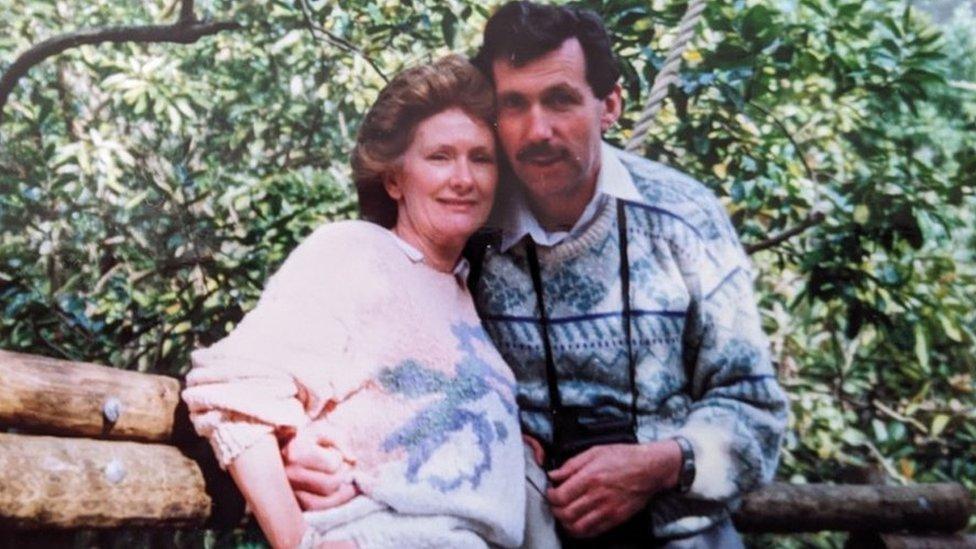
- Published11 May 2023
